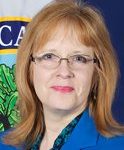The power of teacher agency
Why we must transform professional learning so that it really supports educator learning.
By Laurie Calvert
April 2016
Read the remaining content with membership access. Join or log in below to continue.
Sed ut perspiciatis unde omnis iste natus error sit voluptatem accusantium doloremque laudantium, totam rem aperiam, eaque ipsa quae ab illo inventore veritatis et quasi architecto beatae vitae dicta sunt explicabo. Nemo enim ipsam voluptatem quia voluptas sit aspernatur aut odit aut fugit, sed quia consequuntur magni dolores eos qui ratione voluptatem sequi nesciunt. Neque porro quisquam est, qui dolorem ipsum quia dolor sit amet, consectetur, adipisci velit, sed quia non numquam eius modi tempora incidunt ut labore et dolore magnam aliquam quaerat voluptatem.
This article is adapted from the report Moving From Compliance to Agency: What Teachers Need to Make Professional Learning Work (Calvert, 2016). The full report is available at www.learningforward.org/publications/teacher-agency.
What District And School Leaders Can Do to Improve Education Agency in Their Professional Learning Systems
- Make all professional learning decisions only in serious consultation with teachers and principals. Ensure at least 50% teacher representation on school and district teams that are responsible for every stage of decision making, from planning and data analysis to design, implementation, and evaluation.
- Rethink organization of the school day so that educators have time to meet regularly to collaborate with colleagues to improve teaching and learning.
- Involve and support teachers in analyzing data and identifying teaching and learning challenges.
- Establish learning communities where educators solve problems of practice and share responsibility for colleague and student success.
- Give teachers choices regarding their professional learning, including with whom they work and where they focus their learning.
- Ensure that professional learning is for the purpose of continuous growth, not evaluation.
- Resist the temptation to scale up or mandate a particular form of professional learning without thoroughly examining the context in which it will be implemented. Understand that learners must want to improve their practice and see how the learning opportunity will help them do so.
References
Bill & Melinda Gates Foundation. (2014). Teachers know best: Teachers’ views on professional development. Seattle, WA: Author.
Calvert, L. (2016). Moving from compliance to agency: What teachers need to make professional learning work. Oxford, OH: Learning Forward & NCTAF.
Knowledge Delivery Systems. (n.d.). Professional development: Quality, impact and outcomes. What is your professional development return on investment (ROI)? New York, NY: Author.
Layton, L. (2015, August 4). Study: Billions of dollars in annual teacher training is largely a waste. The Washington Post. Available at www.washingtonpost.com.
Learning Forward. (2011). Standards for Professional Learning. Oxford, OH: Author.
Noonan, J. (2014, Summer). In here, out there: Professional learning and the process of school improvement. Harvard Educational Review, 84(2), 145-161.
TNTP. (2015). The mirage: Confronting the hard truth about our quest for teacher development. Washington, DC: Author.

Laurie Calvert is a National Board Certified teacher who taught for 14 years in western North Carolina. She served as the U.S. Department of Education’s first teacher liaison from 2010 to 2015 and is director of communications and marketing for National Network of State Teachers of the Year.
Recent Issues
NAVIGATING NEW ROLES
April 2025
Whether you’re new to your role or supporting others who are new,...
LEARNING DESIGNS
February 2025
How we learn influences what we learn. This issue shares essential...
BUILDING BRIDGES
December 2024
Students benefit when educators bridge the continuum of professional...
CURRICULUM-BASED PROFESSIONAL LEARNING
October 2024
High-quality curriculum requires skilled educators to put it into...








